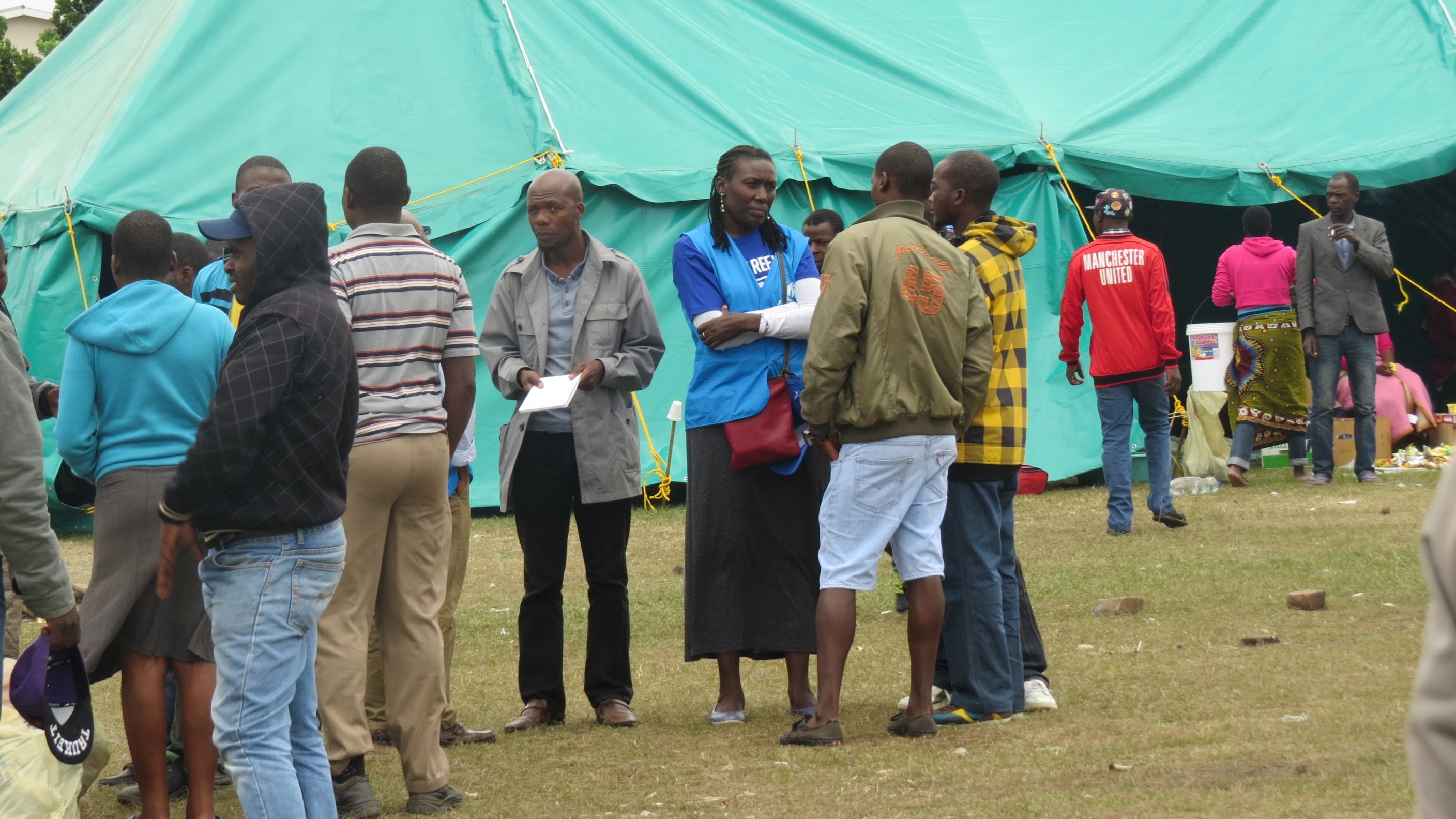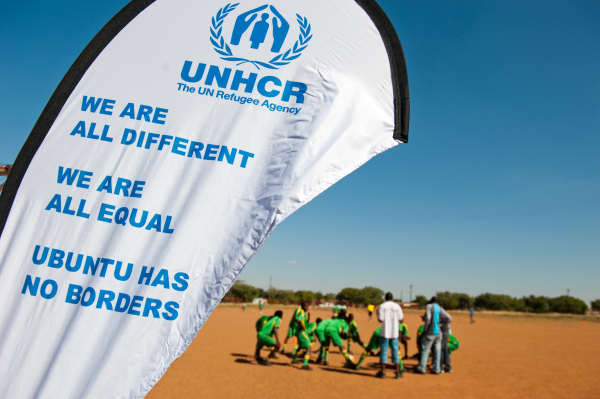South Africa: UNHCR condemns xenophobic violence in Western Cape
South Africa: UNHCR condemns xenophobic violence in Western Cape
UNHCR condemns the latest xenophobic attacks that have driven some 3,000 foreigners, including refugees and asylum-seekers from Zimbabwe, from their shacks in De Dooms, a grapelands farming community with a population of around 13,000 South Africans, 140 kms northeast of Cape Town.
We have moved quickly to help the displaced. They are now awaiting the outcome of negotiations with local farmers who attacked their homes on Tuesday, accusing them of stealing their jobs by accepting cheaper wages in vineyards. Documented refugees and asylum-seekers have the legal right to work in South Africa, but tensions often erupt over competition for jobs.
The evicted foreigners are now staying in a sports field and a community centre in De Doorns, sleeping under three communal tents supplied by the government. Each tent is sheltering some 1,000 people. These are mostly single men, but there are also some families. To ensure privacy for the families, we have donated smaller family tents, which were dispatched from our emergency stockpile in Durban and are expected to arrive in De Doorns this morning.
UNHCR welcomes the rapid humanitarian response of the local authorities and the fact that water, portable toilets and a mobile health clinic were provided within hours. In addition, the South African Red Cross has also been feeding the evicted with two hot meals a day.
This is the first large-scale xenophobic attack affecting refugees and asylum-seekers in South Africa since a country-wide violence in May, 2008.
UNHCR condemns this most recent violence and is sending two staff members from our Pretoria office - at the request of the local authorities - to work with the South African Human Rights Committee and all concerned parties to help bring the situation in De Dooms back to normal and make it safe for foreigners to return there.
At the end of 2008, there were an estimated 110,000 Zimbabwean asylum-seekers in South Africa.








